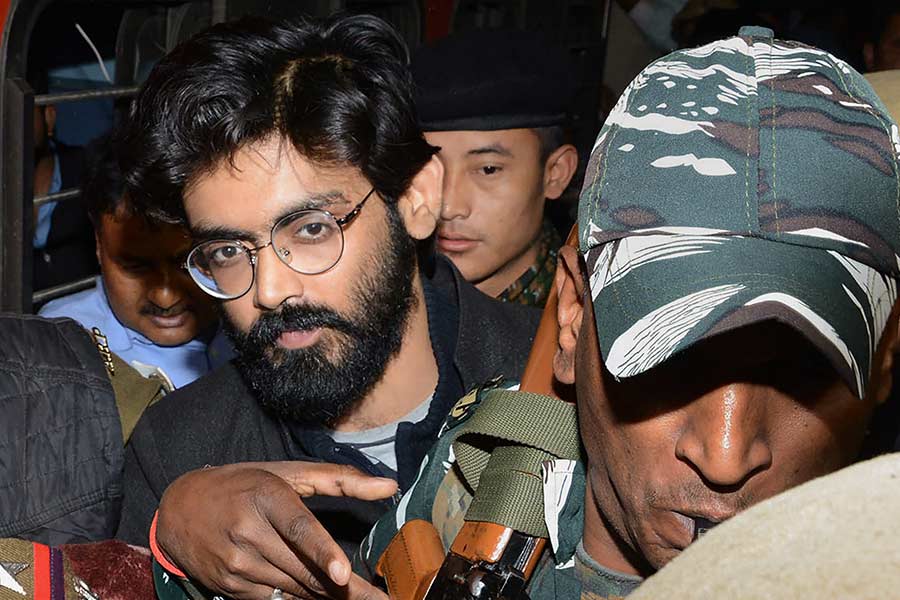The Delhi High Court on Wednesday refused to grant an "early hearing" to student activist Sharjeel Imam on his plea seeking bail in a case registered against him under anti-terror law UAPA over the alleged larger conspiracy behind the communal riots that erupted in the national capital in February 2020.
A bench headed by Justice Suresh Kumar Kait said since the matter was already listed for final hearing on October 7, there was no ground to advance the date.
Imam, Umar Khalid and several others have been booked under the Unlawful Activities (Prevention) Act (UAPA) and provisions of the Indian Penal Code for allegedly being the "masterminds" of the February 2020 riots, which had left 53 people dead and over 700 injured.
The violence had erupted during the protests against the Citizenship Amendment Act (CAA) and the National Register of Citizens (NRC).
Imam's counsel told the matter that his appeal challenging the trial court order rejecting his bail application has been pending for 28 months and despite the case being listed several times, it has not reached its conclusion.
The bench, also comprising Justice Girish Kathpalia, observed that every day there are over 80 matters listed before it and Imam's appeal is listed only next month at a fixed time along with similar appeals by other co-accused.
"Since appeal is listed for final hearing on October 7 at 3:15 pm, there is no ground to prepone the date. The application is dismissed," the court said.
In his application seeking early hearing, Imam said his plea has been listed for hearing at least 62 times before seven different division benches of the high court after issuance of notice in 2022.
"On account of frequent changes in the composition of benches owing to roster change, recusal and transfer of honourable judges, the hearing in the matter never concluded and thereby having led to a fresh cycle of hearing beginning every such time," the application said.
The plea also emphasised that the trial in the present matter has been pending before the special court since 2020 but the investigation was still ongoing and charges have not yet been framed so far.
"The trial in the present case shall be protracted and will take a long time to even commence, much less conclude.On account of appellant’s continued incarceration for almost four-and-a-half years, the appellant, a research scholar who has spent his entire life seeking academic pursuits, is unable to pursue his education and graduate with a doctorate degree," The Supreme Court has ruled that bail applications ought to be decided expeditiously and preferably within two-four weeks, and the NIA Act also states that appeals have to be decided as far as possible within a period of three months from the date of admission of the appeal, the plea further said.
Imam, in his appeal filed in 2022, has assailed a trial court order of April 11, 2022 that denied him bail.
Delhi Police, which arrested Imam in the present case on August 25, 2020, earlier opposed the bail plea on the grounds that he mobilised people from the minority community and "propagated" 'chakka' jam (strike) as a mode of disruption with "no window for peaceful protest".
Police claimed the protests were part of a conspiracy to cause violence to coincide with the visit of then US President Donald Trump, and Imam, in his public addresses, propagated the idea of chakka jam as the plan of action to paralyse the government.
On August 29, the court had listed for hearing on October 7 the bail plea of Imam and other co-accused, including former JNU student Umar Khalid, in the matter.
Except for the headline, this story has not been edited by The Telegraph Online staff and has been published from a syndicated feed.










